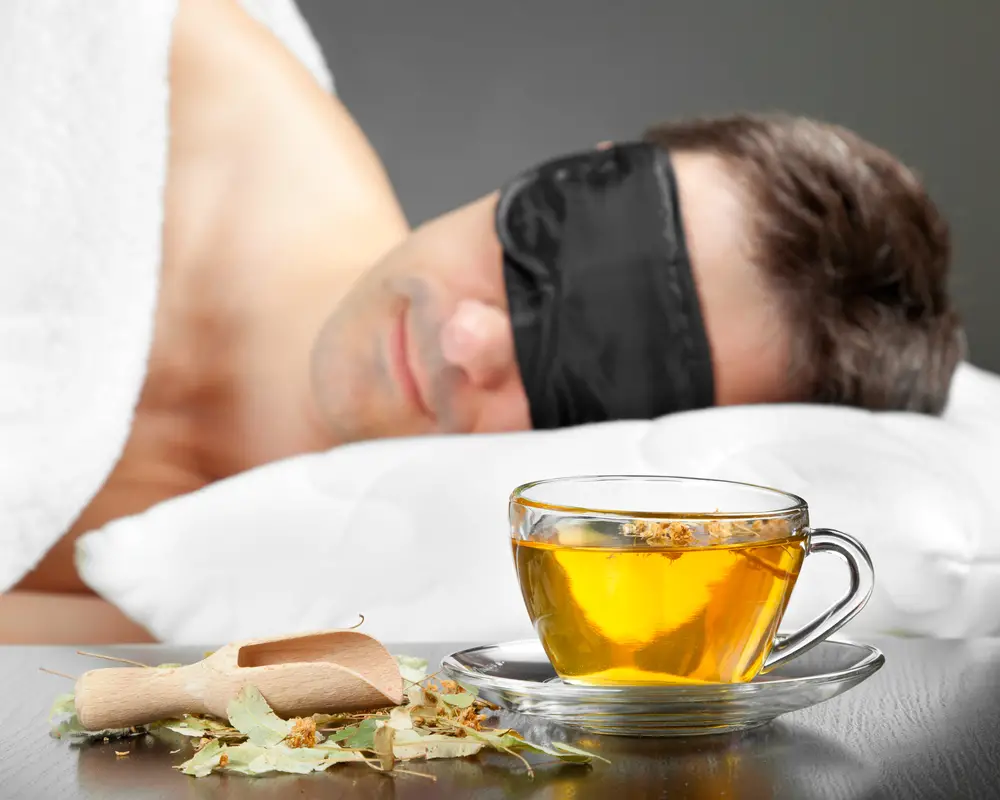As a BetterHelp affiliate, we receive compensation from BetterHelp if you purchase products or services through the links provided
Teas are not only for cold days. Some teas are great for soothing ailments; many have antioxidant effects, and others can boost energy. Teas come in several varieties – proper tea, which contains caffeine, and herbal tea, which doesn’t.
Authentic tea has several varieties: green, black, white, and oolong. These all come from the same plant, but the time the leaves of the camellia sinensis plant are left to dry determines the tea type. On the other hand, herbal teas come from several different types of plants that you can infuse with hot water. Most contain no caffeine or tiny amounts, and many can help you drift off naturally.
But which is the best tea for sleep?
Sweet Dreams: Discover The Best Sleep Tea
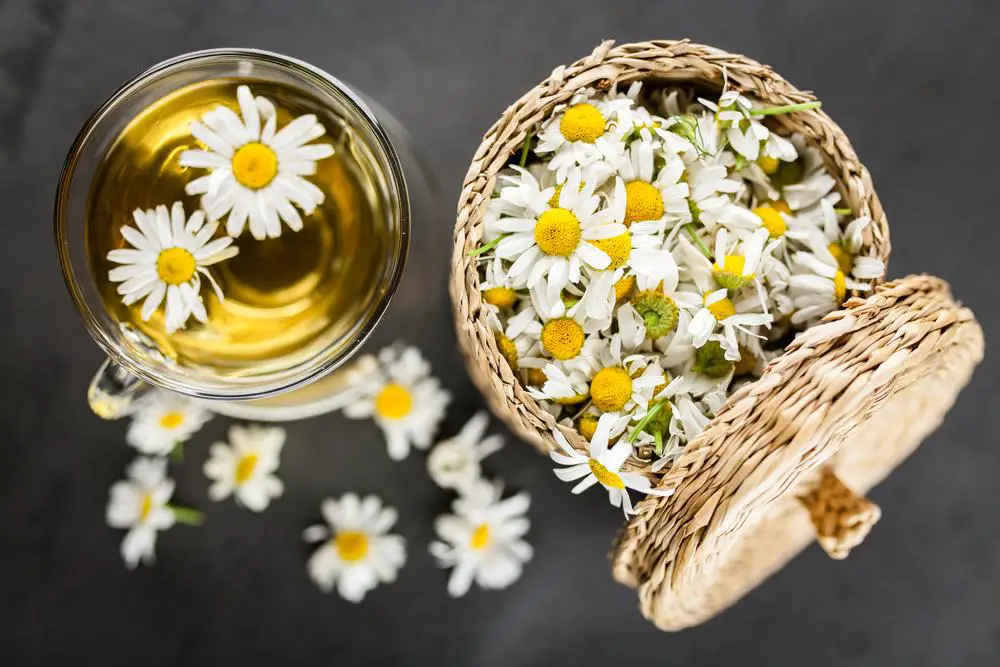 Chamomile flower remains the most popular tea for bedtime. It has been used medicinally for thousands of years, treating ailments like skin inflammations, hay fever, gastrointestinal discomfort, and wounds. The ancient Egyptians also used it for tranquility and insomnia.
Chamomile flower remains the most popular tea for bedtime. It has been used medicinally for thousands of years, treating ailments like skin inflammations, hay fever, gastrointestinal discomfort, and wounds. The ancient Egyptians also used it for tranquility and insomnia.
Research is still limited, but chamomile tea contains apigenin, a flavonoid that has a calming effect. How it works is that it binds itself to the brain’s benzodiazepine receptors, which seems to help alleviate anxiety and encourage sleep.
So far, research has shown that new mothers in a control group who drank chamomile tea slept better and had reduced depression symptoms. In another controlled study, older adults reported better sleep quality than those who didn’t drink chamomile tea.
Chamomile is safe for everyone to drink and rarely causes allergic reactions. If you don’t prefer its flavor, you could look for a tea blend that contains chamomile with a few other sleep-inducing herbs like valerian, passionflower, lavender, etc.
Combine your bedtime chamomile tea with a soothing bedtime routine. Once prepared, you can add honey or lemon to the best tea for sleep. See the recommendations for herbal teas from Healthline that include chamomile.
Sip Your Way to Dreamland: Best Tea For Sleep
When pondering the best tea for sleep, it’s impossible not to mention lavender. The flowers of the lavender plant have a wonderful fragrance, which is why they are used a lot in aromatherapy.
Studies have shown that lavender induces calmness and reduces heart rate, making it an excellent relaxant for a great night’s sleep. Steep the flowers of the lavender plant in hot water for your night-time beverage, guaranteeing a night of restful sleep.
The properties that make lavender a sleep-inducing herb include interacting with the neurotransmitter GABA (gamma-aminobutyric acid), helping quiet the mind, and inducing sleep. It also relieves anxiety and acts like a mild sedative. Using lavender as an aromatherapy oil at bedtime may increase the time spent in deep sleep, where the most rejuvenation occurs.
The Ultimate Bedtime Ritual: Best Sleep Tea Options
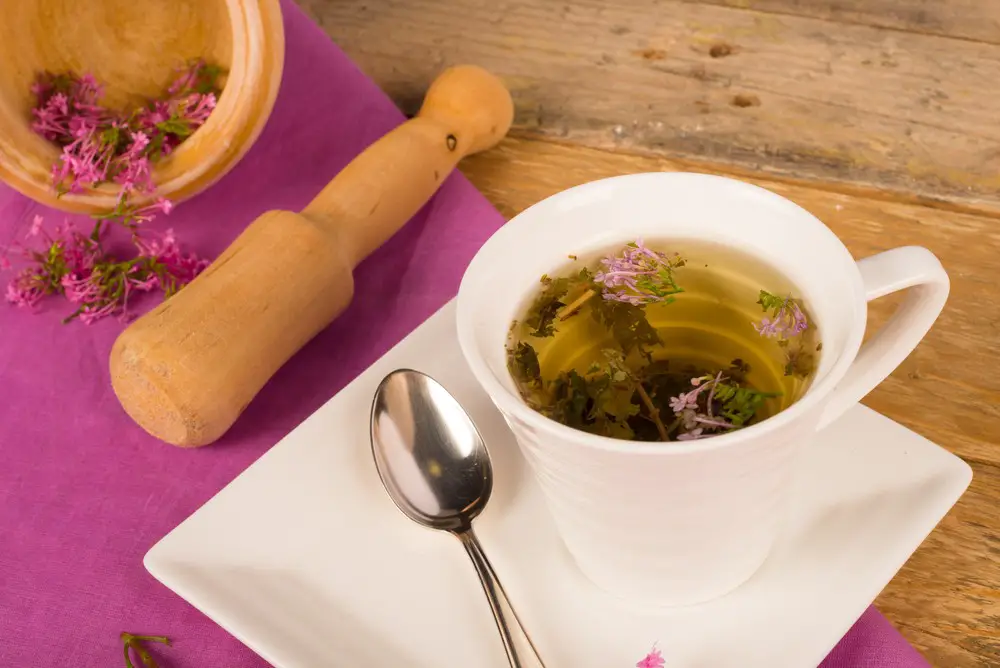
Another herb known for its medicinal purposes for thousands of years is valerian root. The most famous properties of valerian root are its calming effects on those suffering from anxiety and stress. However, it can also help minimize the time you need to fall asleep and improve your sleep quality.
The taste and smell of valerian root is distinct, and many people don’t like it. However, its ability to increase GABA levels and its two natural sedatives – valepotriates and sesquiterpenes, make it popular.
If you don’t find it easy to drink, add honey, maple syrup, or almond milk to improve the flavor. Additionally, you can find a tea that includes valerian root and several other calming herbs, ensuring you get the most benefits and a better-tasting tea.
Medical News Today recommends trying Buddha Teas Organic Valerian Root Tea if you want a tea that contains only valerian. It also recommends trying the Traditional Medicinals Organic Nighty Night Tea Extra Valerian that includes passionflower herb, peppermint leaf, lemon balm leaf, licorice root, and caraway fruit if you prefer a blend with a more pleasant taste.
Warning – Don’t consume valerian root if you take other supplements or medication like benzodiazepines or barbiturates because you may have some adverse effects.
Unwind and Relax: Top Teas for a Restful Sleep
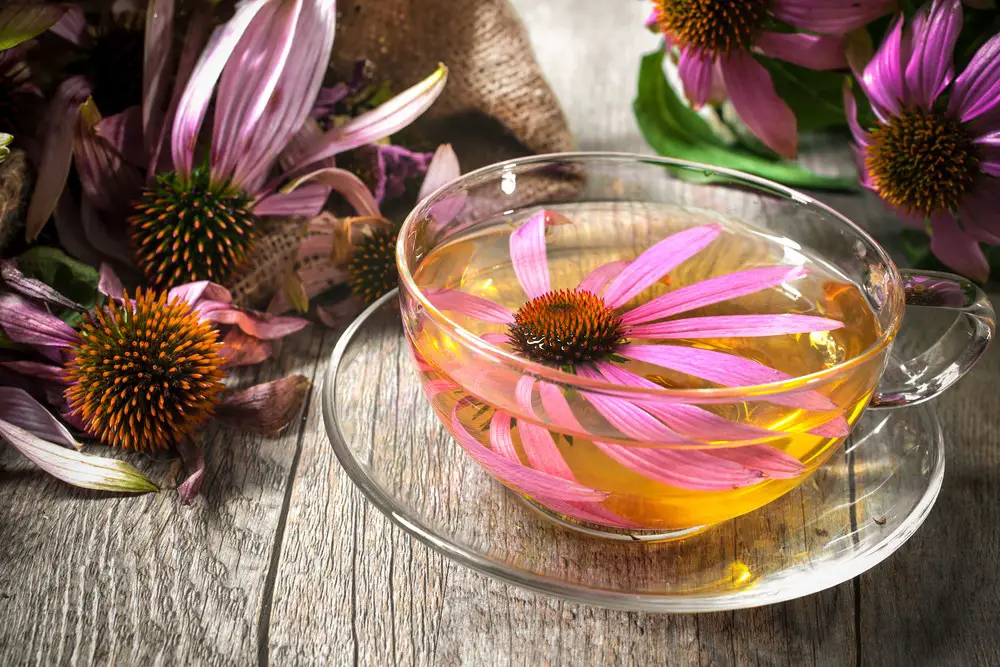
When searching for the best tea for sleep, it’s impossible not to mention green tea. Green tea contains theanine, which reduces stress-related hormones and neutron over-activity, helping relax the brain. That means it’s excellent for your mental health. However, it’s also great for promoting sleep health, especially sleep apnea (a sleep disorder that prevents the body from resting because of intermittent breathing pauses that cause oxygen deprivation).
Green tea also contains polyphenols, which boost brain health and digestion. They also help reduce inflammation and the body’s oxidative stress. Finally, these compounds are great for assisting with weight loss.
However, you must drink a low-caffeine green tea (macha has a high caffeine content) and prefer to drink it throughout the day to reduce fatigue and increase your sleep quality.
Sleep Tight With These Soothing Teas
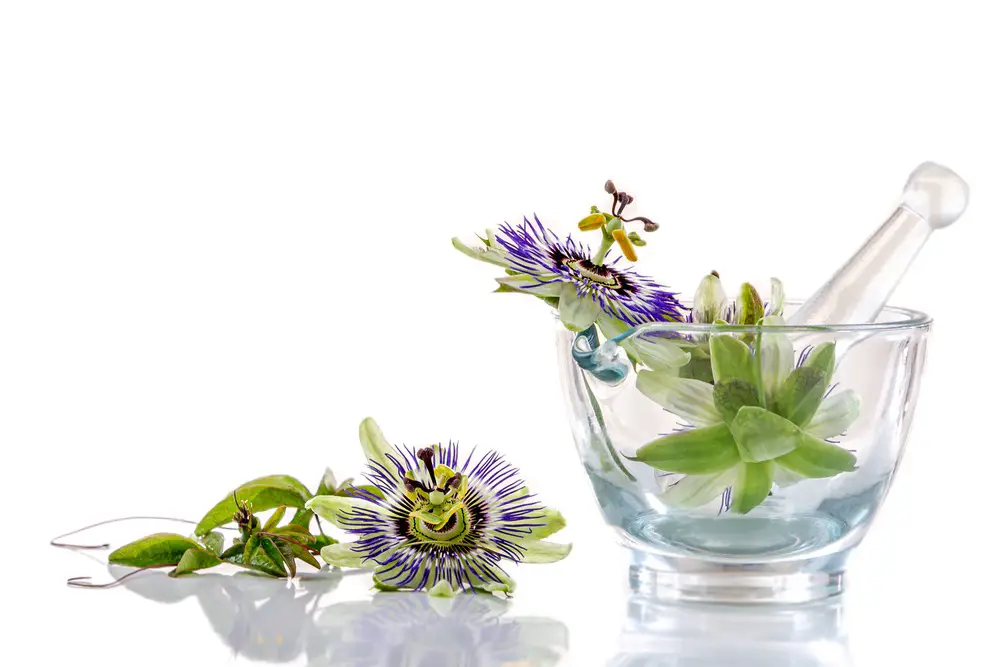
Passionflower is another tea known for having the same soothing effects as chamomile. It also contains flavonoids that bind to benzodiazepine receptors to reduce anxiety, soothing the brain. Passionflower tea has a similar effect as chamomile tea.
So far, research shows its effectiveness matches most traditional sleeping aids when taking capsules that combine passionflower and valerian root. Even though the tea is less concentrated than capsules, it appears to help induce sleep.
Lemon grass is different from lemon balm. The tall grass is popular in Asian cuisine and has several excellent properties, including pain relief, immunity booster, muscle relaxant, and sleep promotion. It is also the scent used in citronella preparations, a great insect repellent. If you want a great tea blend to set the stage for rest, find or create a blend of lemongrass and ginger (known for its settling and comforting effects.) Both are also rich in antioxidants.
Restorative Blends: Best Tea for a Good Night’s Sleep
Most grocery stores and online stores have several options of tea blends with science-backed herbs that will give you a good night’s sleep. These teas are ideal if you don’t like hunting for ingredients and creating infusions.
However, buying loose-leaf ingredients gives you the most potency since you can extract the aromas, flavors, and active ingredients.
The best tea for sleep should include at least two of the following -chamomile, valerian root, lemongrass, and spearmint. Other ingredients often included in blends are lemon balm, ginger, licorice root, rooibos leaf, tilia flowers, hibiscus, rosehip, cornflowers, etc.
These have qualities that appear to promote sleep when added to restorative blends.
Enhance Your Zzz’s: Best Sleep-Promoting Teas
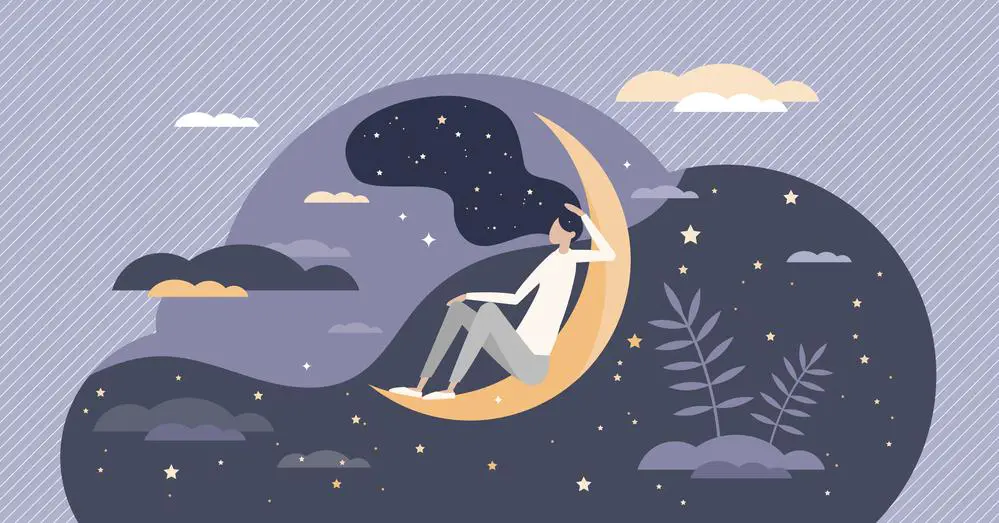 There are even more options when looking for the best tea for sleep. Add some of the following when buying leaves for a blend or buying ready blends:
There are even more options when looking for the best tea for sleep. Add some of the following when buying leaves for a blend or buying ready blends:
Peppermint Tea
Peppermint is a refreshing and stimulating herb revered by the Ancient Greeks and Romans. However, it also has two other unique properties that can help create the perfect conditions for sleep: it’s a muscle relaxant and soothes digestion.
Jasmine Tea
The soothing aroma of jasmine makes this a popular tea to drink at any time of the day. However, it envelops your senses at night, gently easing you into mental relaxation mode and the promise of a peaceful night. Check that you aren’t buying a black or green tea containing jasmine flavor.
Rooibos Tea
Rooibos is a red tea from South Africa. It has a rich flavor that people like in black or green tea, but no caffeine. It’s packed with antioxidants, meaning it’s great for reducing cholesterol and promoting heart health. It might not be such a soother on its own, but it makes a great addition to sleep-promoting teas.
Bedtime Bliss: Explore the Best Tea for a Peaceful Slumber
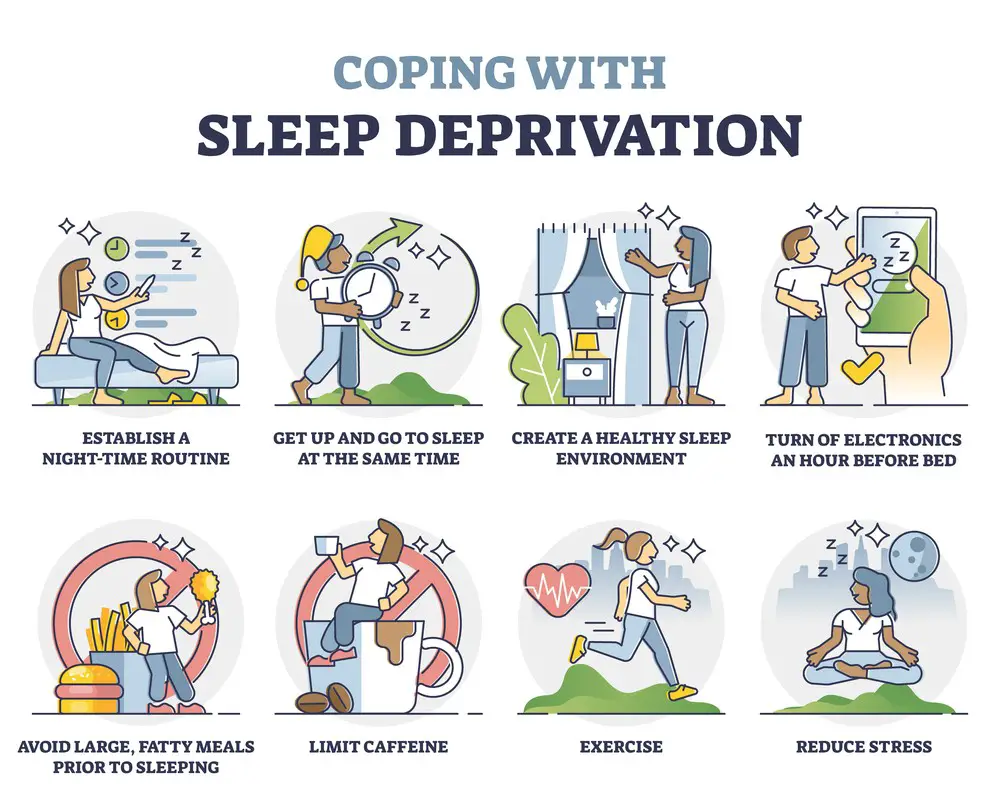 A good night’s sleep is what everyone looks for, but it’s sometimes challenging to attain. If you are looking for bedtime bliss, then you will have discovered that several herbs have the potential to make the best tea for sleep.
A good night’s sleep is what everyone looks for, but it’s sometimes challenging to attain. If you are looking for bedtime bliss, then you will have discovered that several herbs have the potential to make the best tea for sleep.
However, one type of tea may not work the same for you as it would for someone else. Additionally, tea alone will not ensure a good night’s rest. According to Dr. Michael Breus, the author of this article on the Best Tea for Sleep from the Sleep Doctor, it’s also crucial to maintain good sleep hygiene.
Tea can form an essential part of your sleep hygiene as it allows you to create a ritual that prepares your mind and body for bed. Besides the beneficial properties of the herbs you prefer, the whole process of preparing the tea and then drinking it allows you to shift into relaxation mode.
It’s also important to hydrate before resting. Liquids can help improve your metabolism, mood, and heat regulation before bed. If your tea-drinking habit has you getting up in the middle of the night, prefer to drink it at least two hours before going to bed.
Water will do, but adding herbal tea to your nightly routine is the best way to add comfort that will induce peaceful slumber as you take advantage of their soothing effects and great aromas!
Beyond the Tea Cup: Recognizing When It’s More Than Just Insomnia
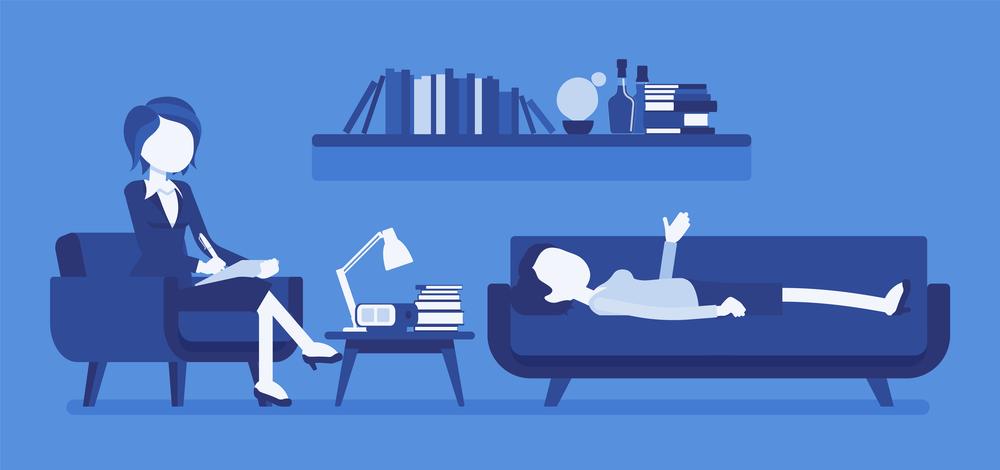
As we’ve journeyed through the aromatic world of teas that promise to usher you into a serene slumber, we must recognize that sometimes the solution to sleep challenges goes beyond our favorite bedtime brews. While teas like chamomile, valerian root, and lavender have been revered for their sleep-promoting properties, there are instances when sleep disturbances might signal deeper health issues or require more than just a soothing cup of tea to resolve.
Here’s how to discern when it’s time to look beyond the teapot and seek additional support:
- Persistent Sleep Issues: If sleeplessness persists for weeks despite a nightly ritual of sleep-inducing teas, it might be time to explore further solutions.
- Impact on Daily Life: When lack of sleep starts affecting your concentration, mood, or health, it’s crucial to consider additional interventions.
- Reliance on Sleep Aids: Finding yourself dependent on over-the-counter sleep aids or increasing their dosage over time can indicate the need for a more sustainable solution.
Exploring Comprehensive Sleep Solutions
When a soothing cup fails to lull you to dreamland, here are avenues worth exploring:
- Over-the-Counter Remedies: Options like melatonin supplements or antihistamines can be effective for occasional sleeplessness. However, they’re best used under the guidance of a healthcare provider to avoid dependency and address any underlying issues.
- Prescription Medication: A doctor may prescribe medication for chronic insomnia or other sleep disorders. Discussing the potential benefits and side effects is important, as medication offers relief but may not solve the root cause.
- Professional Counseling: Cognitive-behavioral therapy for insomnia (CBT-I) is a highly effective, evidence-based approach to treating sleep disorders without medication. It involves working with a therapist to address the thoughts and behaviors that hinder sleep.
Tips for Seeking Help
- Consult a Healthcare Provider: Begin with your primary care physician, who can evaluate your sleep issues and recommend the best course of action, whether medication, therapy or a referral to a sleep specialist.
- Consider Lifestyle and Environmental Changes: Beyond medication and counseling, look at your sleep hygiene, diet, and bedroom environment. Sometimes, minor adjustments can make a significant difference.
- Stay Open to Multiple Approaches: Combining lifestyle changes, therapy, and possibly medication under professional guidance can offer a comprehensive solution to sleep challenges.
While the world of sleep teas offers a delightful and beneficial way to end the day, recognizing when to seek additional support is crucial for long-term health and well-being. By staying attuned to your body’s signals and being open to various solutions, you can navigate to the restful sleep you deserve.
- 3 Ways Wearing a Hat Can Help Lower Your Stress Levels - April 19, 2025
- Breaking the Silence: Why Men’s Mental Health Matters More Than Ever - April 15, 2025
- How to Transform a Home’s Patio Space into a Relaxing Space - March 23, 2025
This site contains affiliate links to products. We will receive a commission for purchases made through these links.

